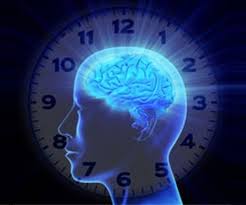What is biological clock (circadian rhythm)?« Back to Questions List
|
Biological clock is the special mechanism inside the human body that regulates the various activities of the body in relation to the sun. People experience different patterns of energy level during a twenty four hour day. Sleep during night and enthusiasm during daytime are the effects of this biological clock. Biological clock is not unique to human being, but is applicable to all forms of life on the planet earth. It functions in plants, animals, fungi, bacteria and human being. The pattern caused by biological clock is also known as circadian rhythm. In Latin circa means "around" and dies means "day". Circadian coming from these two words means "about a day." When a person has been awake for long hours during day time, body through tiredness indicates the need to sleep. The sleep continues throughout the night and when the body becomes energized, the person gets up. This sleepiness and alertness is caused by two body methods: sleep/wake homeostasis and the circadian biological clock. Circadian biological clock regulates the timings and sleep/wake homeostasis causes the balance between sleep and alertness. The circadian rhythm moves like a wave causing dips and rises at different times in a day. Chronobiology is the study of biological rhythms as daily, weekly, monthly, seasonal etc. We may feel tiredness and sleepy after a heavy work. It is not a function of biological clock. To be considered as circadian, a biological rhythm must satisfy three conditions. They are: A. The rhythm should have an endogenous free-running period of around 24 hours. This distinguishes circadian rhythms from responses to external prompts. B. The rhythms should be are entrainable. When the rhythm can be reset by external stimuli (such as light and heat), then it is termed entrainment. Travel across time zones causes the biological clock to automatically adjust to the local time. The traveler will usually experience jet lag before becoming in sync with the local time through the process entrainment of the circadian clock. C. The rhythms should maintain circadian periodicity over a range of physiological temperatures. This means that organisms must be able to maintain the 24 hour periodicity even at a broad range of temperatures. This quality is also known as temperature compensation. Disruptions to circadian rhythms can create havoc with body. It may negatively affect various important body functions including sleep-wake cycles, metabolism, hormone release and body temperature. It may lead to depression, bipolar disorder, obesity and diabetes. The Nobel Prize in Physiology or Medicine for 2017 was awarded to three scientists for their discoveries of the molecular mechanisms that control circadian rhythms. Scientists Jeffrey C. Hall, Michael Rosbash, and Michael W. Young had succeeded in isolating a gene from fruit flies that controls the biological clock inside all living organisms. Their studies over three decades clarified many aspects of biological clock. What are phytochemicals? How does our body get them?Different types of blood vessels in the human body |

